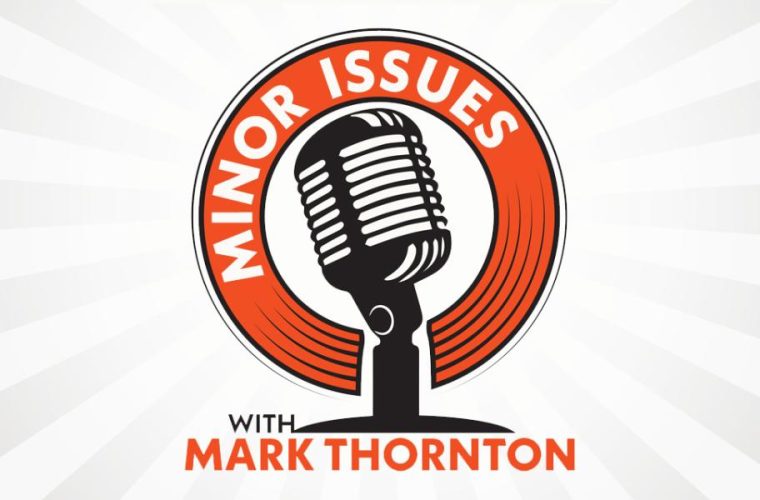
There Is No Moral Right to Strike
Americans are in a time of rising labor unrest and activism, including multiple unionization campaigns, regulatory and legal changes to make it easier for unionization efforts to succeed, the “Fight for $15” minimum wage agitation, and the Hollywood writer’s strike. However, such discussions and campaigns seldom approach the issues involved from a moral perspective, beyond the implicit presumption that trying to force others to give you a raise must be moral.
That is why it is worth reconsidering Leonard Read’s bold argument that “There Is No Moral Right to Strike” in his The Coming Aristocracy (1969): “Rarely challenged is the right to strike. While nearly everyone in the population, including the strikers themselves, will acknowledge the inconvenience and dangers of strikes, few will question the right-to-strike concept.”
A quick Google search of “union strike” or “right to strike” quotes quickly verifies Read’s premise that the right to strike is broadly accepted. However, most discussions of strikes focus on their legality, rather than their morality. Read states that “The present laws of the United States recognize the right to strike; it is legal to strike. However, as in the case of many other legal actions, it is impossible to find moral sanction for strikes in any creditable ethical or moral code.”
That conclusion is dramatically at odds with one particular quote I came across in the search mentioned above that asserted that “The right to strike is a fundamental human right.”
Almost as if he was responding directly to that claim, Leonard Read focused on what he saw as the major source of confusion behind it—the difference between the right to quit, singly or as a group, and the right to strike, which goes much further:
This is not to question the moral right of a worker to quit a job or the right of any number of workers to quit in unison. Quitting is not striking, unless force or the threat of force is used to keep others from filling the jobs vacated. The essence of the strike, then, is the resort to coercion to force unwilling exchange or to inhibit willing exchange. No person, nor any combination of persons, has a moral right to force themselves—at their price—on any employer, or to forcibly preclude his hiring others.
Read, for whom the distinction between willing and unwilling exchange was a major theme, recognized that the right to quit involved no coercion of others and violated no one else’s equal rights to offer their labor or goods and services in willing exchanges. However, strikes relied on coercion, allowing strikers to violate others’ equal rights: “Reference need not be confined to moral and ethical codes to support the conclusion that there is no moral right to strike. Nearly anyone’s sense of justice will render the same verdict if an employer-employee relationship, devoid of emotional background, be examined.”
As he so often did, Read turned to an illustrative example to make his point:
An individual with an ailment employs a physician to heal him. The physician has a job on agreeable terms. Our sense of justice suggests that either the patient or the physician is morally warranted in quitting this employer-employee relationship at will, provided that there be no violation of contract. Now, assume that the physician (the employee) goes on strike. His ultimatum: “You pay me twice the fee I am now getting or I quit! Moreover, I shall use force to prevent any other physician from attending to your ailment. Meet my demands or do without medical care from now on.”
Who will claim that the physician is within his moral rights when taking an action such as this?
Read then generalized the moral conclusion of his example in contrast to the common “right to strike” view:
To say that one believes in the right to strike is comparable to saying that one endorses monopoly power to exclude business competitors; it is saying, in effect, that government-like control is preferable to voluntary exchange between buyers and sellers, each of whom is free to accept or reject the other’s best offer. In other words, to sanction a right to strike is to declare that might makes right—which is to reject the only foundation upon which civilization can stand.
To further develop his argument, Read turns to a property rights approach, reflecting economists’ understanding that different property rights provide different incentives, and different incentives produce different outcomes. In particular, he emphasizes that a job is the result of a willing exchange between parties, not something a worker “owns” in the absence of contractual agreement or continued willingness by the employer. However, a right to strike asserts not just ongoing ownership of one’s current job even in the absence of employer agreement, but a new right they did not have when they entered their employment relationship—the ability to deny all others the right to compete for that job, even if both that worker and the employer would agree to it:
Lying deep at the root of the strike is the persistent notion that an employee has a right to continue an engagement once he has begun it, as if the engagement were his own piece of property. The notion is readily exposed as false . . . A job is but an exchange affair, having existence only during the life of the exchange. It ceases to exist the moment either party quits or the contract ends. The right to a job that has been quit is no more valid than the right to a job that has never been held.
Leonard Read concludes that “the censure” for the adverse consequences for individuals’ rights and social cooperation that arises from both threatened and imposed strikes “should be directed at the false idea that there is a moral right to strike.”
It is worth noticing that Leonard Read’s argument here is also strongly aligned with one of his libertarian forebears—English philosopher Auberon Herbert. Like Read, Herbert believed in a government solely empowered to use defensive force against others’ aggressive use of force so that “the state would defend the rights of liberty, never aggress upon them.” In his 1891 “The True Line of Deliverance,” Herbert stated:
It is the interest of all . . . to make the free-trade footing universal for all. I do not mean that A and B should accept work on any terms other than those that they themselves approve; but that they should throw no dam round their labor by preventing C from . . . accepting terms which they decline. That is the true labour principle, universal individual choice . . .
. . . the labor of the country never can obtain for itself, except at the expense of other labour, more than the free and open market will yield. . . . Extracting more . . . is very near to dishonesty, since he is forcing this higher price at the expense of others. . . .
. . . leave every man free to settle his own price of labour . . . In the case of a serious disagreement between an employer and his men, the union would remove all such men as wished to leave . . . But there would be no effort to prevent the employer obtaining new hands. . . . There would be no strike, no picketing, no coercion of other men, no stigmatizing another fellow-workman . . . because he was ready to take a lower wage—all this would be left perfectly free for each man to do according to what was right in his own judgment. If the employer had behaved badly, the true penalty would fall upon him; those who wished to leave his service would do so . . . That would be at once the true penalty and the true remedy. Further than that in labour disputes has no man a right to go. He can throw up his own work, but he has no right to prevent others accepting that work.
Leonard Read, and Auberon Herbert before him, stood apart from “the crowd” in that both approached the right to strike from a moral perspective. They shared a common answer to the animating question, “Do you believe in force and authority, or do you believe in liberty?” They came to similar conclusions. In fact, Read could easily have written Herbert’s thoughts about the right to strike’s use of coercion to violate others’ rights—“Force rests on no moral foundations.”



